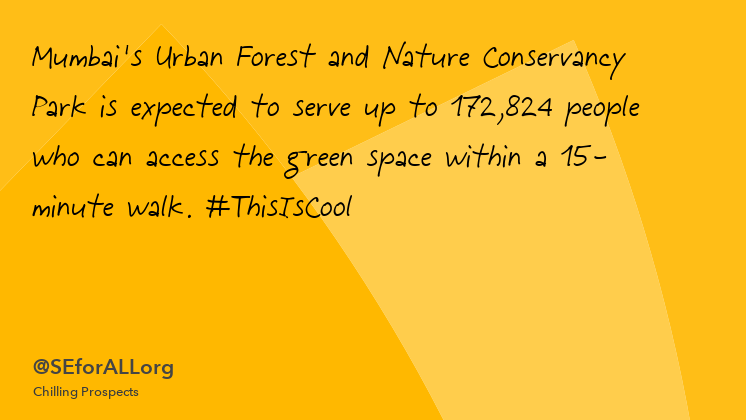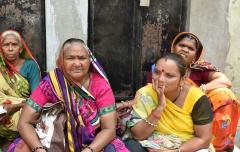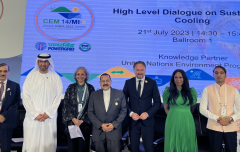Chilling Prospects: Nature-based solutions to reduce the urban heat island effect in Mumbai, India
India is home to 309.2 million people at high risk due to a lack of access to cooling. Mumbai, the most heavily populated city in the country, has undergone rapid urbanization, converting natural land cover with soil, water and vegetation into urban paved areas. Consequently, it has developed a pronounced urban heat island effect (UHIE).
Measured land surface temperatures in Mumbai demonstrate that areas with low built-up density experience temperatures around 28°C, whereas high built-up urban areas exhibit significantly higher temperatures of approximately 34°C. In contrast, on the city's outskirts, where vegetation density and water coverage are more abundant, temperatures range from 21°C to 23°C. [1] Discover more urban land use and heat analysis for Mumbai here and in the WRI Working Paper Urban Blue-Green Conundrum: A 10-City Study on the Impacts of Urbanization on Natural Infrastructure in India.
The impact of Mumbai’s UHIE was particularly noticeable in the suburb of Andheri East, specifically at the Marol Co-op Industrial Estate, following the construction of a metro line. Before the metro’s construction in 2005 and 2010, average temperatures recorded were 29.27°C and 33.4°C, respectively. However, after the construction, the average temperature rose to 38.8°C. [2]
In response to this, the Brihanmumbai Municipal Corporation (BMC) and Marol Co-op Industrial Estate initiated the development of a 3.2 acre Urban Forest and Nature Conservancy Park in Marol along the Mithi river to increase green cover in this heat-stressed part of Mumbai. On World Environment Day in June 2023, the BMC carried out a tree plantation drive supporting this initiative. [3]






